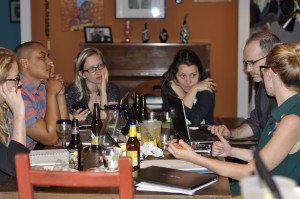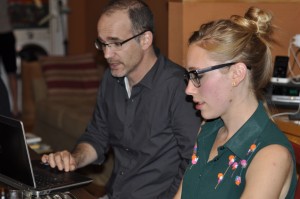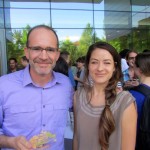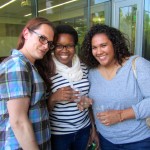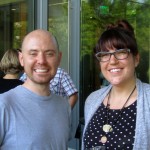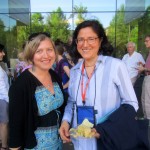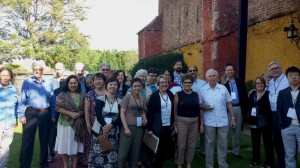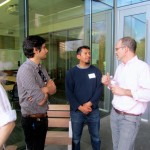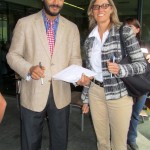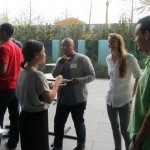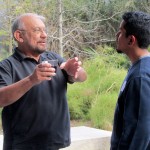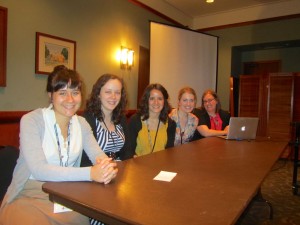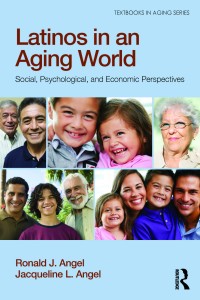By Anna Banchik
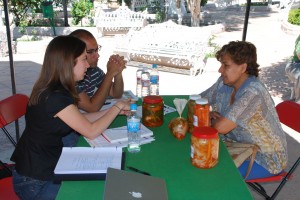 Mexico receives approximately $20 billion (USD) in remittances from the U.S. annually (Rey 2013), an amount roughly equal to the total GDP1 of Nicaragua in 2010 (International Monetary Fund 2013). Remittances are a crucial source of income for many Mexican families who depend on these funds sent by migrants to cover basic needs, pay for expenditures related to health and education, and finance their investments. Indeed, due to their local injection of capital, remittances are often hailed as potential pathways to spur economic development in receptive communities (Márquez-Covarrubias 2010). However, it may be surprising to learn that only 2% of remittances sent to Mexico are estimated to be directed towards business investment (Ramírez, Pérez, and Hernández 2011). Why are so few of these remittances being used to catalyze small business formation? And, what are some of the barriers migrants and their families confront in attempting to create small businesses and keep them afloat?
Mexico receives approximately $20 billion (USD) in remittances from the U.S. annually (Rey 2013), an amount roughly equal to the total GDP1 of Nicaragua in 2010 (International Monetary Fund 2013). Remittances are a crucial source of income for many Mexican families who depend on these funds sent by migrants to cover basic needs, pay for expenditures related to health and education, and finance their investments. Indeed, due to their local injection of capital, remittances are often hailed as potential pathways to spur economic development in receptive communities (Márquez-Covarrubias 2010). However, it may be surprising to learn that only 2% of remittances sent to Mexico are estimated to be directed towards business investment (Ramírez, Pérez, and Hernández 2011). Why are so few of these remittances being used to catalyze small business formation? And, what are some of the barriers migrants and their families confront in attempting to create small businesses and keep them afloat?
A variety of factors are found to encourage or inhibit the establishment and growth of local economic projects in Mexico by migrants and their families. One study finds positive correlations between the creation of informal businesses, local economic dynamism, and the length of migrant stays abroad, as well as positive correlations between the establishment of formal businesses and the size of the community in which the business is based (Sheehan 2011). Another study (Mummert 2005) evaluates business formation by migrants through the influence of two forms of capital: 1) the human capital (i.e. skills, knowledge) they acquired while in the U.S. and 2) their social capital (i.e. their potential to accrue benefits by virtue of their participation in social networks) (Portes 2008).
A little understood aspect of this line of research, however, is the usage of household remittances by women entrepreneurs in the establishment and maintenance of their own microenterprises. The relevance of gender is significant, as women accounted for 52% of all small business proprietors in Mexico in 2012, according to the Encuesta Nacional de Micronegocios (ENAMIN), the country’s national survey on microenterprises (INEGI/STPS 2013). Like other benefits or products of social capital, the reception of remittances is a resource acquired by virtue of one’s linkages to family and social networks. Thus, the investigation of remittance reception and investment by women entrepreneurs through a lens of social capital permits a broader, systematic evaluation of the varied resources that women entrepreneurs obtain through social networks and use for the advancement of economic activities.
Existing literature on the social capital activation of women entrepreneurs indicates that social networks—particularly family relations and other strong ties—indeed play a crucial role in the formation of microenterprises and economic projects formed by women (Katz and Williams 1997, Greve and Salaff 2003). For instance, compared to their male counterparts, self-employed women have been found to derive more use from their family relationships and informal social networks in the establishment of a business (Greve and Salaff 2003). This is, in part, due to women’s relative lack of access to formal business networks (Ibarra 1993). Strong family bonds and norms of reciprocity are especially instrumental in the formation and administration of many women-run microenterprises in Mexico. Here it is common for goods, services, and credit to be circulated throughout the extended, multi-generational family (Villagómez 2003). Furthermore, family members may play an active role in the operations of the microenterprise by realizing daily tasks or performing other activities such as maintenance of the locale, often without monetary compensation (Arteaga 2003). Strong family involvement is especially present in lesser developed microenterprises and those run by women in low-income families (Suárez and Bonfil 2003).
These topics—international remittances, women entrepreneurs, and social capital—constitute the axes of my current research in Zacatecas, Mexico. In particular, the investigation focuses on the importance of household contributions of U.S. remittances, as well as the acquisition of other forms of support (monetary and non-monetary) obtained by the dueñas (women owners) through their social networks, in the establishment and maintenance of the microenterprises.
The concept of social capital comprises the foundation of my analytic framework. Consequently, I will be comparing the structures, quality of trust, and norms of reciprocity characterizing the social networks which constitute four separate “dimensions” of social capital: 1) the family (within and outside of the household unit), 2) networks of friends, neighbors, and compadrazgo (relationships of co-parenting common among families in Latin America), 3) participation in voluntary associations, and 4) links with governmental institutions. I will also consider the relationships between the women’s socio-demographic characteristics with their remittance reception, social capital activation, and the development of the microenterprise.
An important aspect of the research is its geographic focus on Zacatecas, a state which is characterized by historic emigration and significant reception of familial and collective remittances. It is calculated that currently there are more people of Zacatecan origin residing in the U.S. than in Zacatecas itself (Delgado, Márquez-Covarrubias, and Rodríguez 2004). Due to a history of massive regional emigration driven by intense worker recruitment from U.S. firms at the beginning of the 20th century, this northern central Mexican state is the site of well-established international migratory networks (Durand 2010). Over the last half century, these networks have spawned Zacatecan migrant clubs and federations in the U.S. which connect migrants with their local communities in Mexico and, in some cases, enable the political participation and representation of their migrant members from abroad (Delgado, Márquez-Covarrubias, and Rodríguez 2004). By leveraging collective remittances with matching government funds (as in the Three for One Program2), these clubs and federations have also succeeded in coordinating the construction of thousands of public works projects in Zacatecan sending communities (Delgado, Márquez-Covarrubias, and Rodríguez 2004).
Familial remittances also play a significant role in the household economy in Zacatecas. In the year 2000, 13% of households in Zacatecas (approximately 40,000 in total) received remittances (Guerrero 2007: 13). Among these households, remittances constituted an average of 61.9% of total household income, were a principal source of income for 61.5% of households (constituting more than 50% of household income), and were the only source of income for 34.8% of these households (Delgado, Márquez-Covarrubias, and Rodríguez 2004).
In order to prepare for my investigation, I have been conducting preliminary research at the Institute for Social Investigations (Instituto de Investigaciones Sociales) at the Universidad Autónoma de México (UNAM) in Mexico City. Living in Mexico City has afforded me ample opportunities to learn about and connect with grassroots organizations working with migrant-sending families and communities all over the country. I am especially excited, however, to begin my upcoming fieldwork in Zacatecas, which will consist of implementing surveys with selected women entrepreneurs and conducting in-depth interviews with a diverse sample of survey participants. In better understanding the remittance investment and social capital activation of women entrepreneurs in Zacatecas, Mexico, we will be better equipped to answer important questions evaluating the roles of migration and women entrepreneurship in local economic development.
This blog post was contributed by Anna Veronica Banchik, a current Fulbright Scholar in Mexico who will be joining the Department of Sociology at UT-Austin this fall 2014. Her current research is sponsored by a Fulbright García-Robles grant, as well as the National Science Foundation Graduate Research Fellowship. Feel free to contact her directly with questions and/or comments at abanchik@gmail.com.
___________
Citations
Arteaga, Catalina. 2003. “Dinámica interna y redes sociales en micronegocios familiares: Un análisis a partir del caso de Mesa de los Hornos.” In Microempresas familiares en el contexto urbano, edited by Blanca Suárez and Paloma Bonfil, 215-241. México: Grupo Interdisciplinario sobre Mujer, Trabajo y Pobreza.
Delgado Wise, Raúl, Humberto Márquez-Covarrubias, and Hector Rodríguez Ramírez. 2004. “Organizaciones transnacionales de migrantes y desarrollo regional en Zacatecas.” Migraciones internacionales 4: 159-181.
Durand, Jorge. 2010. “Origen y destino de una migración centenaria.” In El país transnacional: Migración mexicana y cambio social a través de la frontera, edited by Marina Ariza and Alejandro Portes, 55-81. Mexico: Universidad Nacional Autónoma de México Instituto de Investigaciones Sociales, Instituto Nacional de Migración/ Centro de Estudios Migratorios, and Miguel Ángel Porrúa.
García Zamora, Rodolfo. 2007. “El Programa Tres por Uno de remesas colectivas en México.” Migraciones Internacionales 1: 165-172.
Greve, Arent and Janet W. Salaff. 2003. “Social Networks and Entrepreneurship.” Entrepreneurship Theory and Practice 1: 1-22.
Guerrero Ortiz, Martha. 2007. “Percepción de remesas de los hogares y condición migratoria en Zacatecas, 2000-2005.” Revista Electrónica Zacatecana sobre Población y Sociedad 31: 1-20.
Ibarra, Herminia. 1993. “Personal networks of women and minorities in management: A conceptual framework.” Academy of Management Review 18: 56-87.
INEGI/ STPS. 2013. Resultados de la Encuesta Nacional de Micronegocios 2012. [press release] July 23, 2013. Aguascalientes: Instituto Nacional de Estadística y Geografía (INEGI) and the Secretaría del Trabajo y Previsión Social (STPS).
International Monetary Fund. 2013. “World Economic Outlook (WEO) Database October 2013.” Accessed March 2, 2014. http://www.imf.org/external/pubs/ft/weo/2013/02/weodata/index.aspx.
Katz, Jerome and Pamela Williams. 1997. “Gender, self-employment and weak-tie networking through formal organization.” Entrepreneurship & Regional Development 3: 183-198.
Márquez-Covarrubias, Humberto. 2010. “Responsabilizar a los migrantes del desarrollo: lecciones del laboratorio social zacatecano.” Economía, Sociedad y Territorio 32: 99-141.
Mummert, Gail. 2005. “Capital humano y capital social en el lanzamiento de microempresas de migrantes michoacanos.” In Remesas y Desarrollo en México, edited by Jerjes I. Aguirre Ochoa and Oscar Hugo Pedraza Rendón, 325-340. Morelia: Instituto de Investigaciones Económicas y Empresariales, Universidad Michoacana de San Nicolás de Hidalgo/ El Colegio de Tlaxcala.
Portes, Alejandro. 1998. “Social capital: Its origins and applications in modern sociology.” Annual Review of Sociology 24: 1-24.
Ramírez Calvillo, Rodolfo, Oscar Pérez Veyna and Francisco Hernández Zavala. 2011. “Los proyectos productivos financiados con remesas y el 3X1 en los municipios zacatecanos y sus formas de organización.” Conciencia Tecnológica 41: 13-21.
Rey Mallén, Patricia. 2013. “Remittances worldwide increase in 2013, except for Mexico; Is the US crisis hurting the Mexican economy?” International Business Times. October 11. Accessed February 25, 2014. http://www.ibtimes.com/remittances-worldwide-increase-2013-except-mexico-us-crisis-hurting-mexican-economy-1421714.
Sheehan, Connor. 2011. “Migration and informal versus formal business creation in Mexico.” Master’s thesis, University of Colorado-Boulder. Boulder: ProQuest/UMI. (Publication No. AAT 1499953.)
Suárez, Blanca and Paloma Bonfil. 2003. “Introducción.” In Microempresas familiares urbanas, edited by Blanca Suárez and Paloma Bonfil, 9-23. Mexico: Grupo Interdisciplinario sobre Mujer, Trabajo y Pobreza.
Villagómez Valdés, Gina. 2003. “Los negocios de la pobreza femenina: Microempresa, género y familia en Yucatán.” In Microempresas familiares en el contexto urbano, edited by Blanca Suárez and Paloma Bonfil, 243-293. Mexico: Grupo Interdisciplinario sobre Mujer, Trabajo y Pobreza.
1 At purchasing power parity, or PPP.
2 In this program, each dollar sent to a community in Zacatecas by a migrant club or federation in the U.S. is matched one dollar by each level of government (i.e. the municipal, state, and federal governments). Public works projects realized through the financing of this program include the construction and repair of basic infrastructure, churches, parks, and other public spaces. From 1993 to 2005, an estimated $60 million (USD) financed 1,500 projects in Zacatecas (García 2007).
